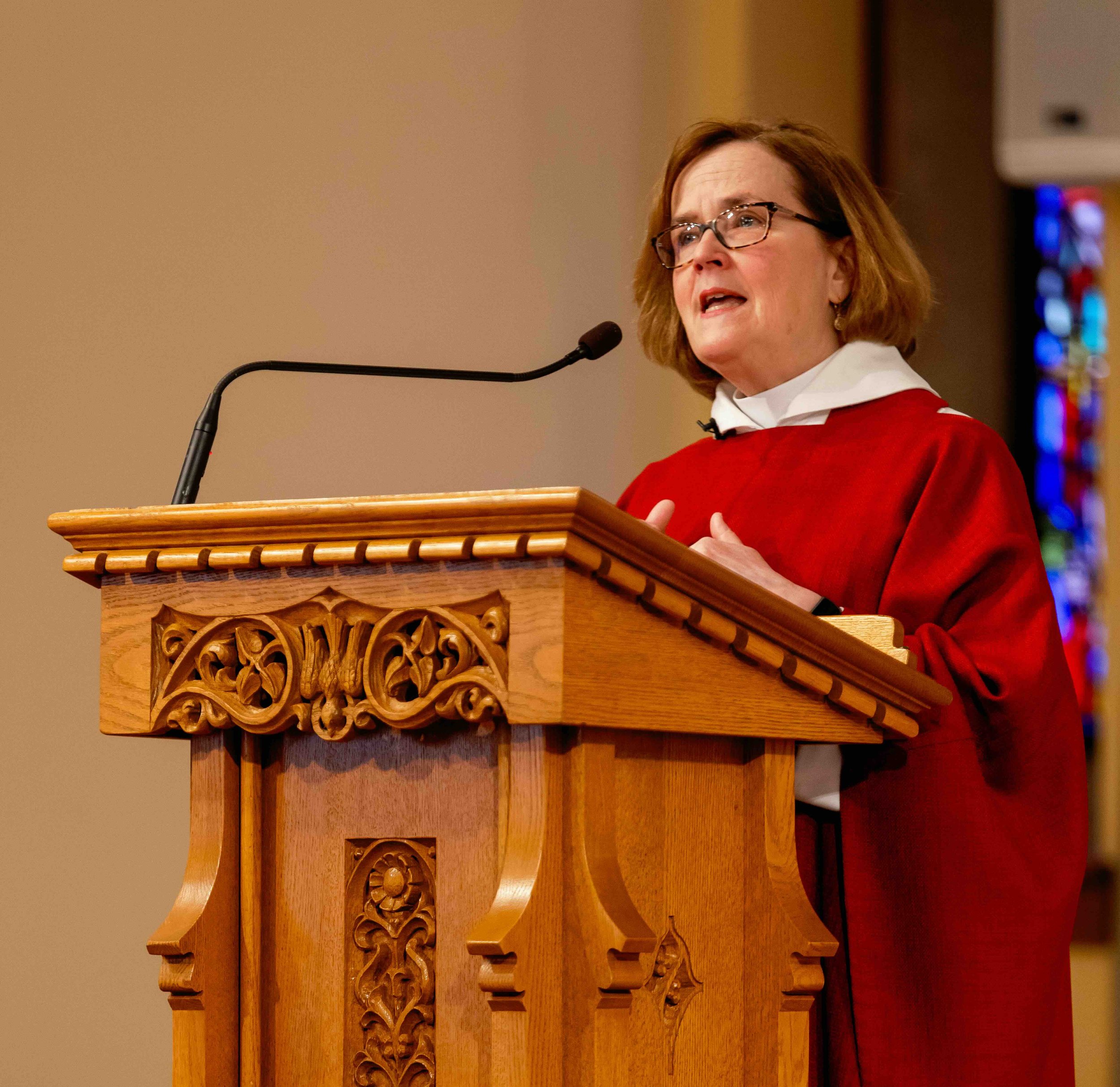
From our Worship
Sermon Blog
Christmas in Our Time
Dear friends and newcomers alike, today is finally the Eve of Christmas and we are gathered this evening to hear tell of the story that you have no doubt heard told countless times by now, in your life, and during this season of Advent. It’s the story of the fulfilment of a long-awaited promise. It’s the story of the light of hope breaking into the darkness in the least likely places. It is the story of the incarnation of God through the birth of Jesus Christ in the manger.
We have been thrown a delightful curveball this liturgical year in that Advent IV and Christmas Eve are coinciding, and so to do justice to these two theologically distinct observances, I invite you to suspend your ordinary sense of time with me during this service. Let’s try as best as we can to set down our thoughts about all of the wrapping that has yet to be done, the meals that need to be prepared, and the cookies that will get set out for Santa this evening. For now, let’s simply take this hour or so of calm before the storm to dwell in peace, in God’s time, which we share this morning with a most special guest. A guest whose humility, courage, and incredible faith are why we are able to celebrate the birth of our Lord Jesus at all. Today we have the great honor of spending time with God in the presence of the Blessed Virgin Mary.
The Tenses of Advent
Today is the first Sunday in Advent and we mark the beginning of a new liturgical year by entering a season of preparation for the arrival of our Lord, Christ Jesus, into the world. But how, exactly? And why? Didn’t Jesus already come to us through his miraculous birth to the Blessed Virgin Mary in a manger two thousand years ago? Even in our world where the Feast of the Incarnation, also known as Christmas, has become thoroughly commercialized, we still hear carols on the radio proclaiming the wonder of the nativity story in shopping malls, advertisements, and on the radio. As ubiquitous as Christmas is this time of year, it’s easy to take for granted the story of God’s arrival on earth as just that – a cozy story of a possible historic event that is a nice aesthetic embellishment to a season filled with so many other mixed symbols of ambiguous origin.
The Sacrament of the Present Moment
Last week I prepared an activity on contemplative prayer for the youth in our EYC group. My idea was to have all of us gather here in the nave on the eve of All Saints week, dim the lights, put on Gregorian chant, to invite our youth into a space of quiet contemplation in the hope that we might carve out time in our chaotic lives to simply be still, listen, and be present to God’s loving presence in our midst. The coup de grace of this contemplative moment was that we were going to light the thurible – our liturgical incense burner – and experience how the smoke, rising up like our prayers, can help prepare us for a bodily encounter with the divine.
Baptism
On this Feast of All Saints, something incredible is about to happen. We are going to welcome someone special as the newest member of the Communion of Saints, which is the whole household of faith, past, present, and future. And we are going to do this by baptizing her in the name of the Father, Son, and Holy Ghost. But first, what is baptism, exactly? What is going on when we do it?
"Render unto Ceasar"
If you had been contemplating tax evasion – or pledge evasion – this morning, the Gospel lesson may have complicated these plans for you. Today we hear the famous ‘render unto Caesar’ passage in Matthew, as it is translated in the King James Bible. The situation presented to us is this: the Pharisees come to Jesus and pose a question to him in bad faith. The question is whether it is lawful for faithful Jews such as themselves to pay taxes to the Roman emperor. Now, why is paying taxes for them a problem? Their problem is not the obvious financial inconvenience of taxes. Observant Jews at the time had no issue with the notion of taxes in general. Every adult Jewish male was expected to pay a modest tax for the work, worship, and upkeep of the Temple, that functioned much like our pledge to support the ministries of our parish today. Rather, the issue with paying Roman taxes was the moral dilemma of whether or not it was in their interest, as a colonized people, to pay taxes to their colonizers. Because the Roman empire had taken over the region of Palestine in the 1st century by use of military force, which, in a sadly familiar situation, resulted in much religious and political conflict.
